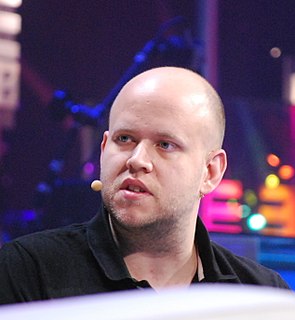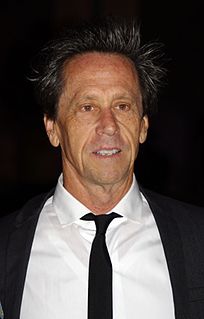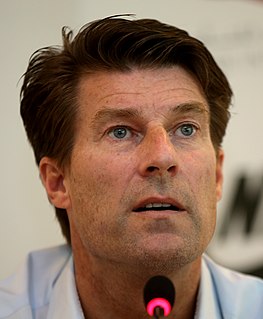A Quote by Jakob Nielsen
Good information architecture makes users less alienated and suppressed by technology. It simultaneously increases human satisfaction and your company's profits. Very few jobs allow you to do both at the same time, so enjoy.
Related Quotes
In diminishing the role of the worker's body in the labor process, industrial technology has also tended to diminish the importance of the worker. In creating jobs that require less human effort, industrial technology has also been used to create jobs that require less human talent. In creating jobs that demand less of the body, industrial production has also tended to create jobs that give less to the body, in terms of opportunities to accrue knowledge on the production process.
Both instruments are processors of information. Both appeared when nothing quite like them had existed before, and both began to make their effects felt immediately (a situation that isn't invariable with new technology). Both devices were less the result of a single breakthrough than of an evolving set of technologies. Like the computer, the printing press had no one certain inventor; it was a technology whose time had come.
It's something that I know how to do because I taught for a very long time, so I can do it, and I feel a responsibility to do it - for instance, in this situation, where I'm touring specifically for this period of time. But most writers are not public people. There are a few writers out there who really enjoy it and are good at it, and can both work and do that at the same time, but I'm not one of those people.
Developing fewer features allows you to conserve development resources and spend more time refining those features that users really need. Fewer features mean fewer things to confuse users, less risk of user errors, less description and documentation, and therefore simpler Help content. Removing any one feature automatically increases the usability of the remaining ones.
Information wants to be free.' So goes the saying. Stewart Brand, the founder of the Whole Earth Catalog, seems to have said it first.I say that information doesn't deserve to be free.Cybernetic totalists love to think of the stuff as if it were alive and had its own ideas and ambitions. But what if information is inanimate? What if it's even less than inanimate, a mere artifact of human thought? What if only humans are real, and information is not?...Information is alienated experience.
The more you enter, the more you become locked in. Your social-networking site becomes a central platform - a closed silo of content, and one that does not give you full control over your information in it. The more this kind of architecture gains widespread use, the more the Web becomes fragmented, and the less we enjoy a single, universal information space.
As you start the company, you start spending spending spending ahead of revenue but then you come out of it and very quickly you should become a company that spends less than it makes. And what I mean by very quickly, is that window of time should be in that 6 to 8 year time frame. And the reason is because if you build your business model correctly it's almost unavoidable.
Good information architecture enables people to find and do what they came for. Great information architecture takes find out of the equation: the site behaves as the visitor expects. Poor or missing information architecture neuters content, design, and programming and devalues the site for its owners as well as the audience it was created to serve. It’s like a film with no director. The actors may be good, the sets may be lovely, but audiences will leave soon after the opening credits.
































